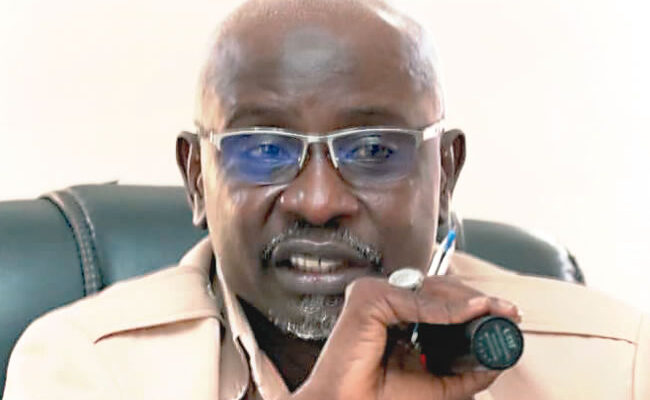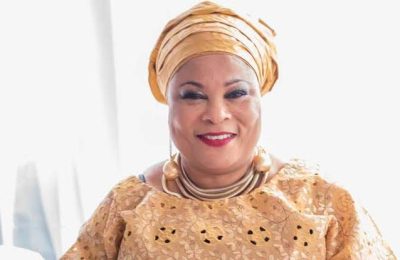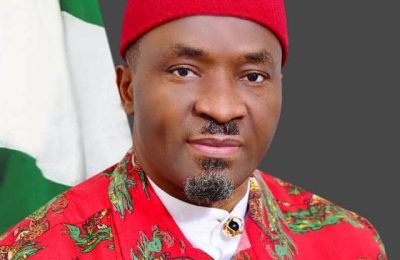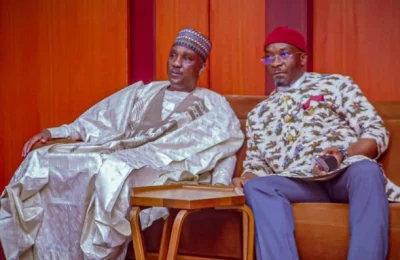

The Senior Staff Association of Nigerian Universities (SSANU) was among the university-based trade unions that went on a protracted strike in 2022. Its National President, Comrade Mohammed Ibrahim, in this interview with CHRISTIAN APPOLOS, speaks on the root cause of the strike, why funding tertiary education is important and why stopping of strikes seems impossible in the sector.
What was the main cause of the industrial disharmony between the Federal government and the university-based trade unions in 2022?

For us in SSANU, 2022 was the most challenging year because it saw the breakdown of discussions between us and the government, as early as March in that year.
Everything that has to do with instability in Nigerian high institutions, especially in the universities, dates back to the 2009 agreement which the government signed then to implement to better the lots of workers in the universities across all the four university-based unions – SSANU, NASU, ASUU and NAAT. And we celebrated the signing of that document because the government promised to see to the fruition of the agreements.
One important aspect of that agreement was that it provided for it to be reviewed after every three years so that realities on ground will prevail over certain issues. There were some things that were also time bound; some allowances that were to be phased out, as soon as they were paid.

But 13 years down the line, we are struggling to implement the 2009 agreement. The question of reviewing it after every three years is even out of the question because by now we should have reviewed that 2009 agreement like three or four times, but it never happened.

Until last year, after a lot of pressure, meetings upon meeting discussions, lobbies and so on, the government finally saw reason to do what is called integration of the renegotiation committee. The government inaugurated the NImi Briggs’ Committee that was to renegotiate with the unions, but they ended up only attending to one union and even the one, nothing came out of it because the government rejected the report.
SSANU had few meetings with the NImi Briggs Committee and we hit a dead end and the committee could not continue when we got to talking about review of wages, new salaries and allowances.
The government came with a fixed mind of fixing a certain amount in the name of review, and that is not collective bargaining. In labour parlance when you say collective bargaining, it means you bring your idea and I bring my own; we negotiate on the table and agree at a middle course. But when you come with a fixated mind and say look, take this or leave it. It cannot be said to be collective bargaining.
So they came and threw something at us and fortunately all the four unions rejected. Since the last six months, we have not met with them. And we realised that they are also handicapped because it is only when they are given the go ahead, that they will call a meeting.
So 2022, like I said, had lots of challenges. In March, precisely, SSANU as a union, after a series of meetings that could not bring out anything because prior to 2022, we had signed an MOU with the government in October 2021. It had a two-week timeline but it never saw the light of day. We had another meeting in December 2021, nothing happened. We had in January 2022, nothing happened. We gave notice and said since the law permits us to withdraw services in the name of protests, we are giving you an ultimatum but as usual, nothing happened. So, precisely on March 27, we declared our strike.
When it became problematic and ASUU, NASU, SSANU and NAAT went on strike, the government decided to start looking for us to meet. And when we met with the Minister of Education and his people, we thought there is a new song now because they are our employers. We felt that this time around whatever we signed with them was going to see the light of the day.
We signed and we gave them a timeline of two months. That was in August. We suspended our strike precisely on August 24. That was when we resumed and before then, the government had implemented the policy of ‘no work no pay.’ They stopped our salaries for months. We didn’t get May, June, July and August salaries.
We resumed at the end of August with the understanding that between September and October all that we have agreed with the government and the Minister of Education was going to be implemented by today. And most of the content of the agreement we signed for immediate implementation are about things we have signed two or three years ago. Like payment of the arrears of the allowances, issues surrounding usurpation of duties by the academic staff, taking over most of our jobs in the universities, in pseudo committees and a lot of other violations of our own work ethics. Now it has been months yet nothing came on board.
In a nutshell, 2022 apart from thanking God that we were able to survive it because so many people have died, I can tell you, it was a most challenging year. As a union, we lost so many members to ill health, terminal ailments and some were frustrated owing to their inability to access medical care because salaries were stopped, and we appealed to the government but it fell on deaf ears. The government never cooperated.
Be that as it may, we are in 2023 and we are hopeful especially, since this is going to herald a new administration.
We are still hopeful that before this government leaves in May something miraculous will happen by the government agreeing to pay the backlog of salaries withheld, release our allowances and ensure that all other teams that we have agreed on will also see the light of the day.
I want to draw the attention of the government and its officers that education remains the key factor in development. There is no way a country or a society or anybody can develop even as a human being if you are not educated. So you must make available education, quality one at that, to your own people and it has to be education beyond the primary and secondary.
All our government officials today were beneficiaries of a very sound educational system at the tertiary level; they enjoyed it, and that is what made them what they are. But today you can see that public universities have become so terrible in the sense of bad infrastructure, low staff morale, teachers are not remunerated well, they are not paid as and at when due, administrative staff are not paid well and facilities in our universities, such as hospitals, classrooms, laboratories, continue to remain a challenge. It is either they are inadequate or where they are adequate, they are not fully functional. You cannot even see where they are adequate in public universities in Nigeria. We are urging the government that is on its way out not to leave with this image.
Why do you think the government is seemingly displaying a lackadaisical attitude to implementing agreements reached with unions and funding of tertiary education?
Well, with all due respect to those in government, I will say that the government’s lackadaisical attitude is a clear case of misplacement of priorities. What make the advanced world different are three things – education, health facilities and security.
If you have a good healthcare and education system, and your security is intact, all other things can just fall in line. It becomes disturbing when you see government officials, whom I have referred to as people who benefited from a working system before and now they are in charge and they don’t care. Our public officers have their children in private institutions, whether within or outside the country.
I have once said that for us to correct where we are now, there should be a deliberate attempt by the National Assembly to enact a law that will say for any person to hold public office, especially political – counsellor, local government chairmen, commissioner, permanent secretary, minister, Ambassador – their children must be in public institutions and they must patronise public healthcare facilities and any attempt to violate this, the person should be shown the way out.
This will be the fastest way of restoring glory to where we have lost it. This should also include me as a president of a trade union. I should be made to do that. Even though I am already doing it; all my children are in public school. But anything outside this it will be a story of deception. It will be a story of comedy because what they will be saying in public is different from what they are doing in their private life. Let the president, governors, ministers and everybody have their children in public schools in Nigeria.
When we were in university, I studied with the children of presidents; Abacha, for example. His children were in University of Maiduguri. We were with the children of ministers, Emirs and highly placed government officials.
If you look at what is happening, the government officials are the ones even establishing more and more private universities and the government knows and it gives them a licence. You are holding a public office and you are running a private university. How on earth will you put in your best to ensure that public universities function to a high standard?
So, there is misplacement of priority by the government. There is a deliberate attempt to continue to widen the gap between the poor and the rich. And this is what is happening.
What can trade unions do differently to get the government to fulfil or implement agreements in order to prevent strikes, especially protracted strikes as witnessed in 2022?
SSANU as a union, we are not strike-happy people. We hardly go on strike because it is populated by administrators; people who work to oil the engine of the system. Whenever you hear SSANU going on strike, we must have been pushed to the wall or they must have put their knees on our necks and we are looking for a way out.
Globally, strikes are tools in the hands of workers to fight for their rights. Strikes are legal weapons available for workers anywhere in the world. Stopping strikes will be a bit difficult. In fact, it is not even possible.
However, strikes should be embarked upon when it becomes necessary.
We don’t strike on every small issue because you as human beings, you definitely will have cause to have misunderstanding even in your own house. But then, the government, as employers of labour, should be available to discuss issues, show understanding and willingness to help their workers access good remuneration, good working atmosphere and facilities and equipment because without this, definitely, it will be a continuous battle.
If the government doesn’t want strikes, it knows what to do. But for us as workers, and like I say in SSANU, we are not strike mongers. We only go on strike when we are pushed to the wall. But strikes are legal weapons; it is a product of law. ILO Convention provides that workers can go on strike.
ALSO READ FROM NIGERIAN TRIBUNE









